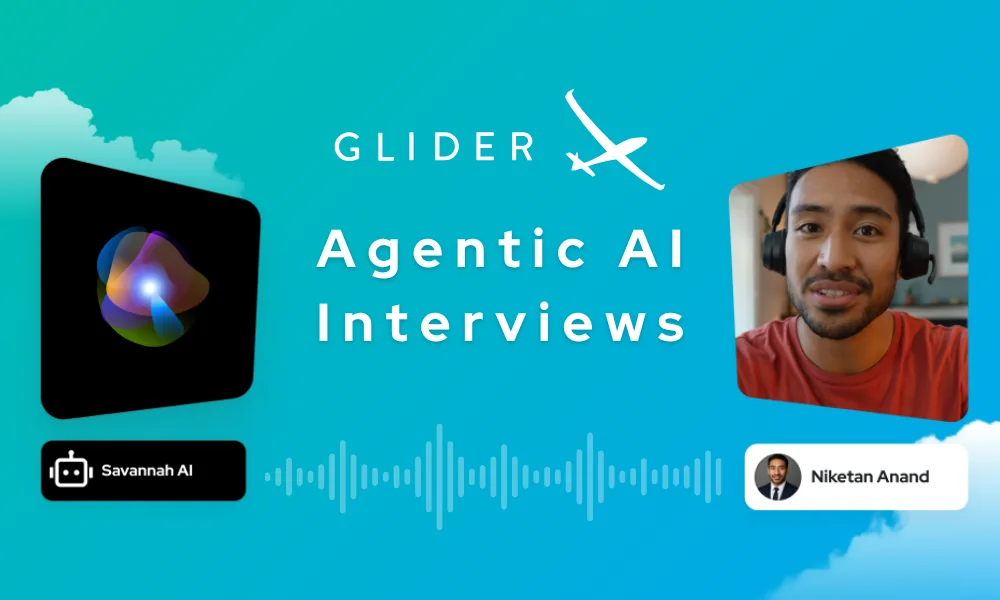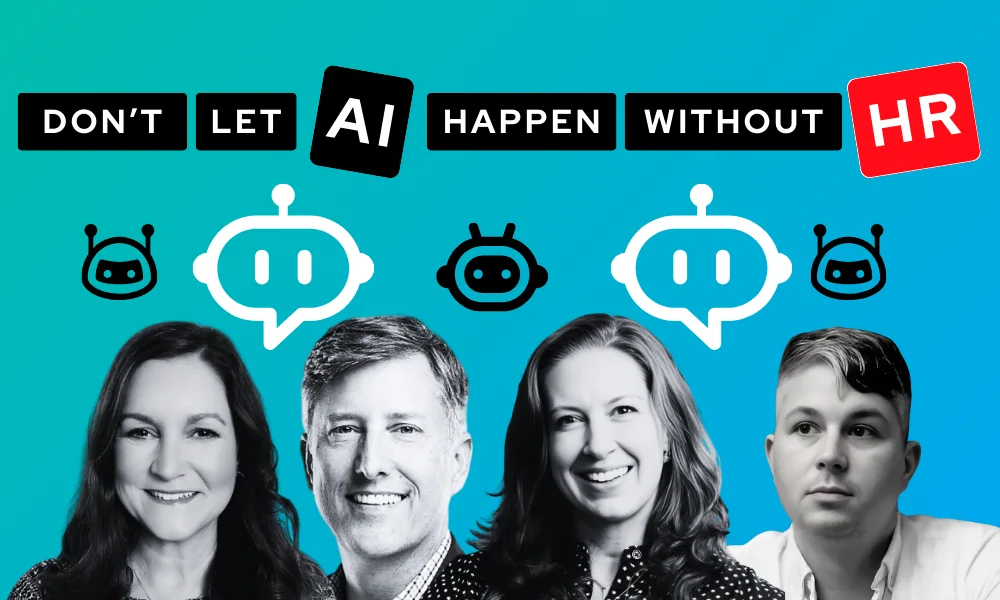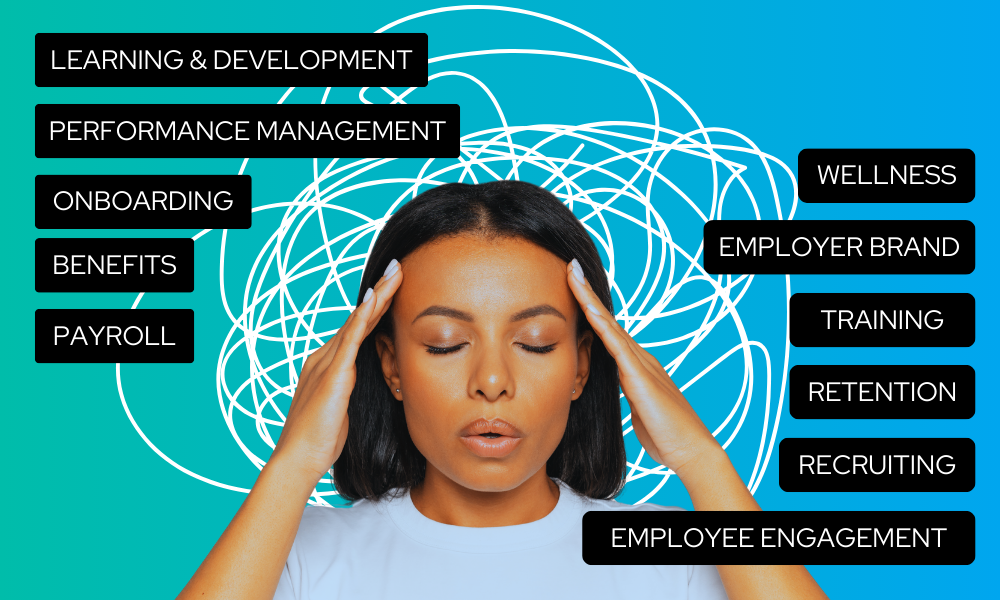Did you know that 76% of HR leaders surveyed in 2024 believe their organizations will fall behind competitors if they don’t adopt AI tools within the next two years?
This trend is particularly apparent in human resource functions. A January 2024 Gartner survey found that 38% of HR leaders explicitly look into AI for recruitment.
What is AI recruiting, and what is its purpose?
Recruitment is a multifaceted process that involves many tasks and requires many skills and specialties. AI tools for HR provide the efficiency, meticulous data assessment, and robust organization needed to do the job efficiently.
These tools complement human experience and insight to create a data-driven but human-centric recruitment and hiring strategy.
With AI as an assistant, organizations can automate monotonous tasks and reduce human errors, resulting in quicker and more confident hiring decisions.
How will AI change the recruiter role?
The rise of AI in recruitment has, understandably, sparked concerns about its potential to replace human recruiters completely.
But the reality is quite different. AI is a complementary tool that was designed to augment human capabilities.
Technology will become ubiquitous in most HR employees’ tasks but will only partially replace them. Companies should consider artificial intelligence in recruitment as a partner rather than a replacement for human recruiters.
What HR functions can AI help with?
The role of AI in recruitment encompasses a wide range of functions:
- AI systems can automatically screen resumes to pinpoint relevant skills, qualifications, and experience. AI screening can expedite the application review process.
- AI tools can also identify potential candidates on job boards, online platforms, and social media based on specified criteria and keywords to make candidate sourcing much more efficient.
- AI algorithms can assess applicants’ suitability by comparing their profiles with job requirements. This automatic candidate matching makes it easier to shortlist applicants that best fit the role.
- Some of the best AI-driven recruitment tools provide chatbots and virtual assistants to answer candidate queries and conduct preliminary interviews. This 24/7 availability enhances the applicant experience.
- AI can identify patterns that correlate with successful outcomes by analyzing past hires using predictive analytics. This information can help recruiters predict candidate success. The latest AI recruitment platforms can even evaluate a candidate’s responses, facial expressions, and tone during video interviews to objectively assess traits such as communication skills.
- AI tools can uncover and reduce unconscious biases in recruitment processes to support diversity and inclusion initiatives.
How does an AI recruitment platform work?
The best platforms integrate seamlessly with your HR assessment tools and talent management systems. They offer comprehensive tools, including:
- AI-enabled chat
- AI-phone screening
- AI-guided skill assessments
- Soft-skill analysis
- Autonomous interview questions
- Automated interview summaries
- Candidate verification
Impressively, advanced platforms now offer AI proctoring. This technology can detect suspicious activity and fraud to safeguard the integrity of your assessments.
Why are AI tools in HR important?
AI integrates data analysis, machine learning, and automation to streamline HR processes. This ultimately saves time and enhances outcomes.
Note that this evolution goes beyond simple automation. Instead, AI is an intelligent partner that empowers HR professionals to dedicate their expertise to more strategic areas.
Providing timely information and personalized recommendations can enrich employees’ and job seekers’ experiences.
How is AI revolutionizing the recruitment process?
The benefits of AI in recruitment are clear:
- Companies that integrate AI in recruitment can generate substantial time savings. These technologies take over labor-intensive tasks, freeing HR professionals to dedicate their expertise where it matters most.
For example, AI tools for HR can quickly sift through vast applications and pinpoint which candidates best match the job requirements. Although AI excels at handling large volumes of data, pairing it with human insight is essential, particularly in making final hiring decisions.
- AI tools perform tasks in a fraction of the time required by human efforts. They can process and summarize large datasets while identifying patterns almost instantaneously.
AI provides insights on where to allocate efforts and budget by determining the most efficient sources for top talent acquisition. This ultimately saves companies money and allows for better resource distribution.
- Beyond recruitment, AI tools enhance the overall employee experience and contribute to higher retention rates. By automating routine administrative tasks, employees can focus on more strategic work, improving productivity and job satisfaction. Moreover, adopting AI technologies equips staff with valuable tech skills, enriching their professional development. Prioritizing employee experience benefits individual well-being and strengthens the organization’s employer brand, attracting and retaining top talent.
- AI can likewise be used to diminish bias in the recruitment process. AI promotes a more inclusive hiring procedure by focusing squarely on qualifications and skills. It can filter out personal information (such as age, gender, and other details) from applications so that decisions can be based on qualifications alone.
- AI may adopt biases from its training data, potentially resulting in an “ideal candidate profile” that fosters less diversity. This underscores the importance of human intervention in identifying and correcting AI’s blind spots. HR professionals must vigilantly select and scrutinize the data used to train their AI systems, ensuring that these technologies are true partners in fostering a fair and inclusive recruitment process.
- We dive deeper into how to maximize AI’s bias reduction capabilities in our next blog: Exploring AI’s Inclusion in Diversity Recruitment. (link this to the next blog)
- There’s no question that AI in recruitment is reshaping how HR professionals hire by offering tools that automate and refine traditional tasks. This streamlines recruitment while creating a more objective, efficient, and inclusive hiring practice. Organizations that embrace these technologies stand to gain a competitive advantage in attracting and retaining top talent.
If you’re ready to take the leap and experience the benefits of AI in recruitment, try out Glider AI. Start with a free trial.



